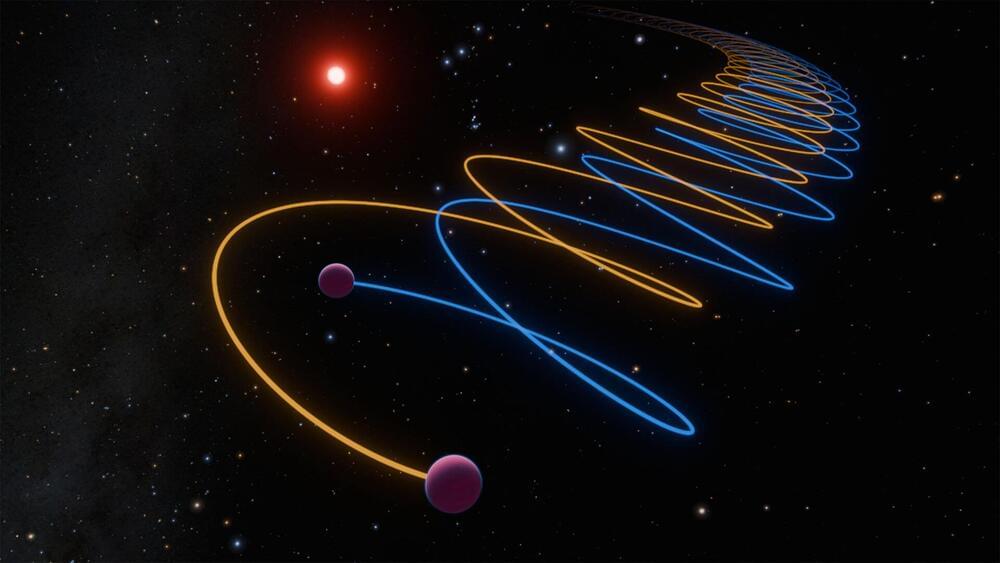Oct 17, 2024
Synthesizing New 3D Materials by Twisting
Posted by Saúl Morales Rodriguéz in categories: particle physics, space
Overlapping two 3D lattices with a relative twist opens the door to synthesizing crystals with diverse symmetries that showcase nontrivial band structures and novel properties.
When two identical periodic lattices overlap in space, with one twisted at an angle relative to the other, they form moiré lattices. The best-known examples are formed from stacked and rotated 2D sheets. These structures can possess fascinating properties not seen in their component layers. Twisted bilayer graphene, for example, can exhibit superconductor and Mott insulator behavior [1, 2]. Ce Wang of Tongji University in China and his colleagues now propose how to construct a 3D moiré lattice using two cubic optical lattices hosting ultracold atoms [3]. The researchers mathematically describe how two simple periodic structures, twisted relative to each other, can lead to 3D optical moiré patterns (Fig. 1). The result is a crystal-like structure with emergent properties that differ from those of the underlying simple lattices.


















